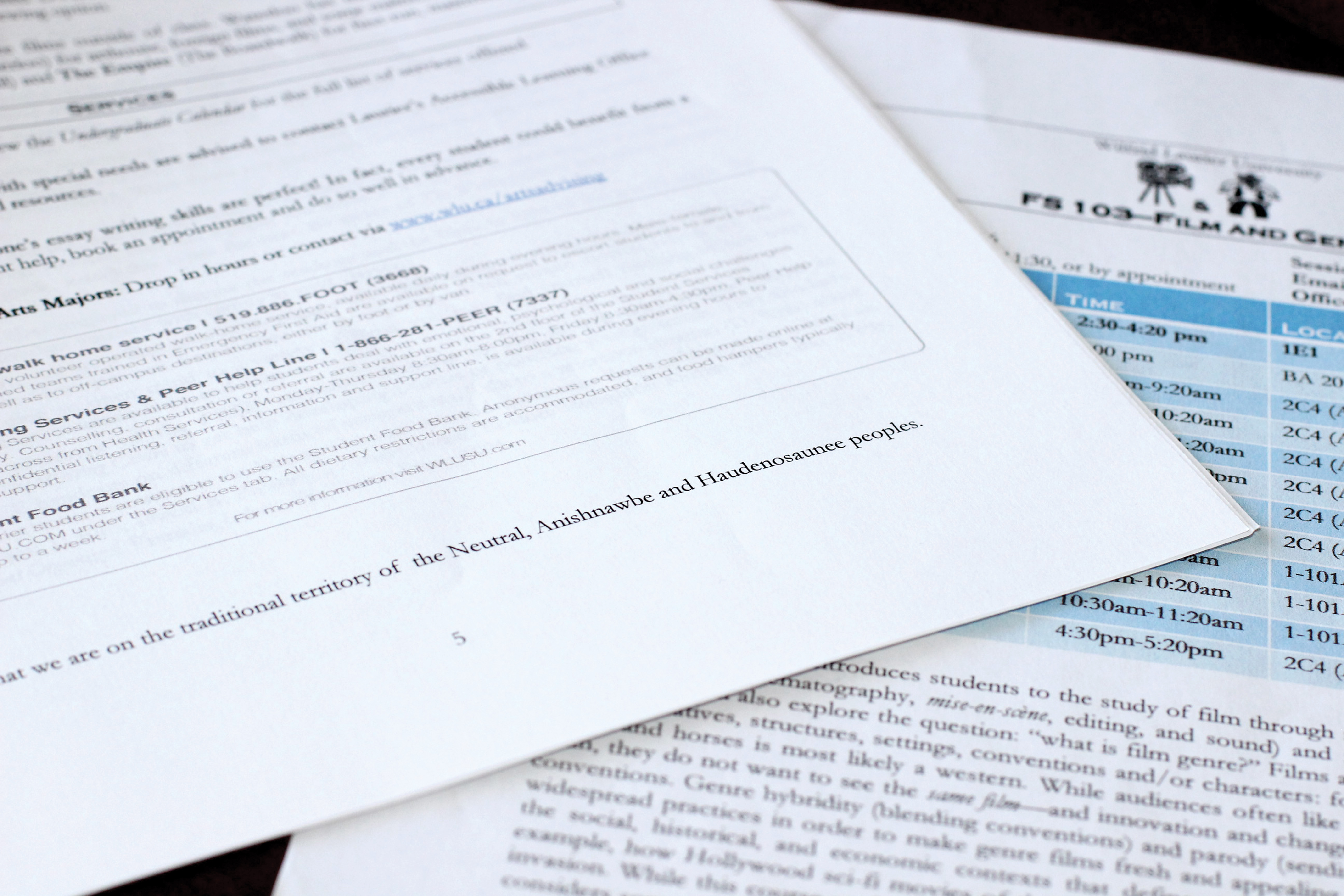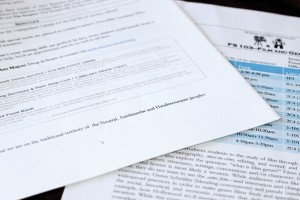Recognition brought to Aboriginal land claims

Syllabi acknowledge WLU located on First Nations land

Students in the English and film studies department at Wilfrid Laurier University may have noticed an addition to their course syllabi this semester.
There is now a statement at the top of many syllabi which reads, “We acknowledge that we are on the traditional territory of the Neutral, Anishnawbe and Haudenosaunee peoples.”
This was an idea put forward by Ute Lischke, chair of the English and film studies department.
She explained her hope is students will notice the addition of the statement on their syllabi and will bring it up in class, generating discussion.
“Being aware that we are sitting on First Nations land — it’s really important, I think, that that gets acknowledged, that we talk about it, that we put it into the open,” she continued. “We don’t do this nearly enough.”
Laurier is located on the Haldimand tract, a strip of land running 10 kilometres on either side of the Grand River which was given to the Six Nations Confederacy in a treaty. According to Lischke, most students don’t know this about the university’s location.
“We’re trying to introduce more indigenous courses at the university. We’re also trying to indigenize the curriculum. So just bring about awareness and acknowledging the presence of indigenous peoples that we shared the land with,” Lischke said.
Jean Becker, senior advisor of Aboriginal initiatives at Laurier, said when Lischke told her about the idea she thought it was fantastic.
“One of the challenges for indigenous students is the lack of awareness of indigenous people, of indigenous history, of indigenous cultures, of our continued existence and in our invisibility in Canadian society,” Becker said.
Indigenous people, she continued, are not well represented in the education system.
“I think that any effort to include indigenous people is valuable.”
Becker said it brings attention to the fact that land claims are contemporary issues. The education system teaches that these issues are things of the past, when really they remain relevant today.
Currently, the statement only appears on the syllabi of courses in the department of English and film studies. But Lischke hopes that other departments will start to do this as well and eventually have it be a university-wide practice.
The idea for the statement was brought up at the dean’s advisory council, where it was met with some controversy, Lischke said. One opinion was that it was an empty gesture.
“Well we said that no, it’s not an empty gesture for us because we’re also doing initiatives to celebrate indigenous culture,” Lischke said.
For example, the department runs an indigenous film series and is often involved in events being run by the Aboriginal Student Centre.
Other issues people had with the statement, she said, were that syllabi are already too cluttered or that the statement is political in nature, and therefore does not have a place on syllabi.
Cammy Szabo, a third-year general arts student at Laurier, feels putting territorial acknowledgments on syllabi or even making such statements at events isn’t helpful. They believe it has just become a trend.
“It doesn’t delve into anything more than that and that’s probably where the problem lies, is there’s no effort being made to actually begin to heal all the wounds that we as settlers have caused and to de-colonialize our lives as much as is possible,” Szabo said.
In response to these concerns, instructors have the option to not include the statement on their syllabi.
“My argument would be you talk about it,” Lischke said. “You bring it out into the open, you put it out there and you discuss it.”
The statement also enacts indigenous protocol, where you acknowledge the territory that you are in and recognize the people of that territory have allowed you to be there.
“How fantastic is that, to actually bring an indigenous protocol into our institution in such a way that every student will see that,” Becker said.
From here, Becker said she would like to see more education at Laurier around indigenous culture.
“We need to retell Canada’s history and we need to retell it more honestly than we have in the past,” she said. “I think there is so much potential for us to do some really good education about indigenous people and our place and our role in this country which has been buried and denied.”


